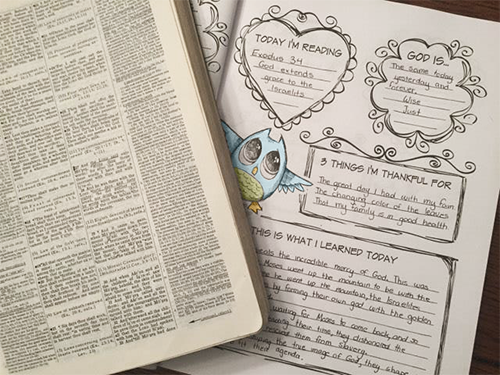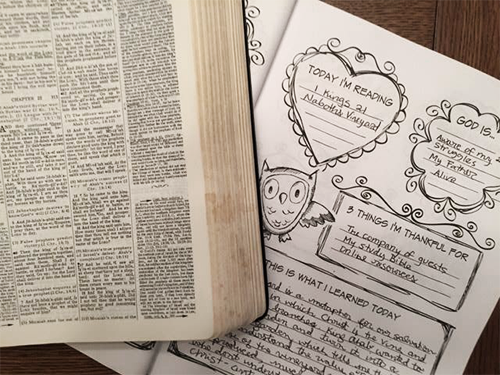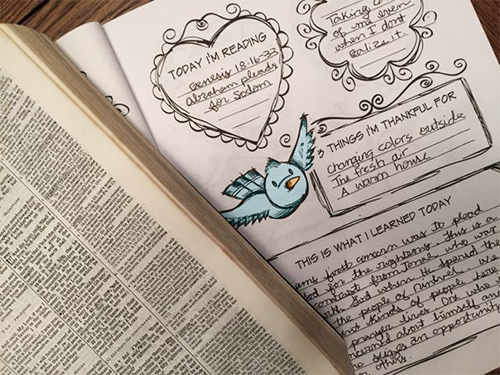
I thought I had something new this week. I saw a common thread in the three passages we read. God was gracious and forgiving, but many rejected His grace. And then I noticed that I saw the same thing last week, and I realized that this was more than just a lesson–it’s a wake up call to pray for those who reject the grace of God.
Unlike Jonah who was angry and self-centered, Moses and Abraham were concerned for others. We see two different kinds of people here. Two different prayer lives in a sense. One who is less concerned about righteousness than they are about getting what they want from God, and the other seizing an opportunity to stand in the gap for others.
My thoughts on each lesson are below as well as this weekend’s coloring page. Until Monday, have a great weekend!
You are loved by an almighty God,
Darlene Schacht
The Time-Warp Wife

Exodus 34 – God Extends Grace to the Israelites

They were tired of waiting for Moses to come back, and so instead of wisely spending their time, they dishonored the very God who had rescued them from slavery.
In much the same way, many people tire of waiting for Christ—they start to doubt His return. They’re more concerned about pleasing themselves, than they are about pleasing the Lord. The Bible tells us to watch and to be ready for the return of Christ. Many however dishonor their faith by chasing the things of this world.
Instead of worshiping the true image of God, they shape and mold Him to fit their agenda.
Just as God was merciful to the Israelites, He is merciful to us today. Forgiving much. Forgiving often. He is longsuffering, and patient and kind. He showers us with forgiveness and grace. But while He is merciful and kind, He is also just. He calls us to repent and to turn away from our sin.
C.S. Lewis writes, “The demand that God should forgive such a man while he remains what he is, is based on a confusion between condoning and forgiving. To condone an evil is simply to ignore it, to treat it as if it were good. But forgiveness needs to be accepted as well as offered if it is to be complete: a man who admits no guilt can accept no forgiveness.”

1 Kings 21 – Naboth’s Vineyard

“I am the vine, ye are the branches: He that abideth in me, and I in him, the same bringeth forth much fruit: for without me ye can do nothing.” – John 15:5
King Ahab wanted to take the vineyard and turn it into a vegetable garden, which tells me that he didn’t understand the value and purpose of the vineyard and the fruit in which it produces, much like many today who don’t understand the purpose of a Christ-centered life. He saw the vineyard as something that he could by, in the same way that people think salvation can be earned.
He also didn’t understand the significance of this inheritance.
“In whom also we have obtained an inheritance, being predestinated according to the purpose of him who worketh all things after the counsel of his own will.” – Ephesians 1:11
Jezebel is like the many sinners who reject Christ and would have him nailed to a cross all over again if they could. Their hearts are hardened and they refuse to obey.
Ahab is like many sinners who finally come to the understanding that salvation is a gift that comes by grace through faith.
The scriptures tell us that he was vile, and that he chased after idols. It says that there wasn’t anyone who sold himself to wickedness like Ahab did, but God forgave Him in the same way He forgives all who come to repentance.

Genesis 18:16-33 – Abraham Pleads for Sodom

What I learned from today’s study is that we need to fervently pray for others. Not just that God’s grace would be upon them, or that the gospel would be preached to them, but that their hearts would also be open and prepared to accept Him.
Abraham started off by asking God if He would spare 50 righteous people in the city of Sodom, then he continued to ask about 45, 40, 30, 20, and finally 10.
Abraham asked “Peradventure ten shall be found there.”
And he [the Lord] said, I will not destroy it for ten’s sake.”
Perhaps Abraham was pleading on behalf of Lot’s entire family, his wife, his daughters and their husbands, which might be why he stopped at ten.
What Abraham didn’t know at the time was that while God’s grace was given to Lot’s entire family, not all of them would accept the warning and flee for their lives.
In fact, as we learned last week, his sons in law stayed behind because of their unbelief, and Lot’s wife turned into a pillar of salt when she looked back at the city.
Abraham’s first concern was to plead with God for the righteous. This is a stark contrast from Jonah who was angry with God when He spared the lives of the people of Nineveh.
We see two different kinds of people here. Two different prayer lives in a sense. One who is less concerned about righteousness than they are about getting what they want from God, and the other seizing an opportunity to stand in the gap for others.

